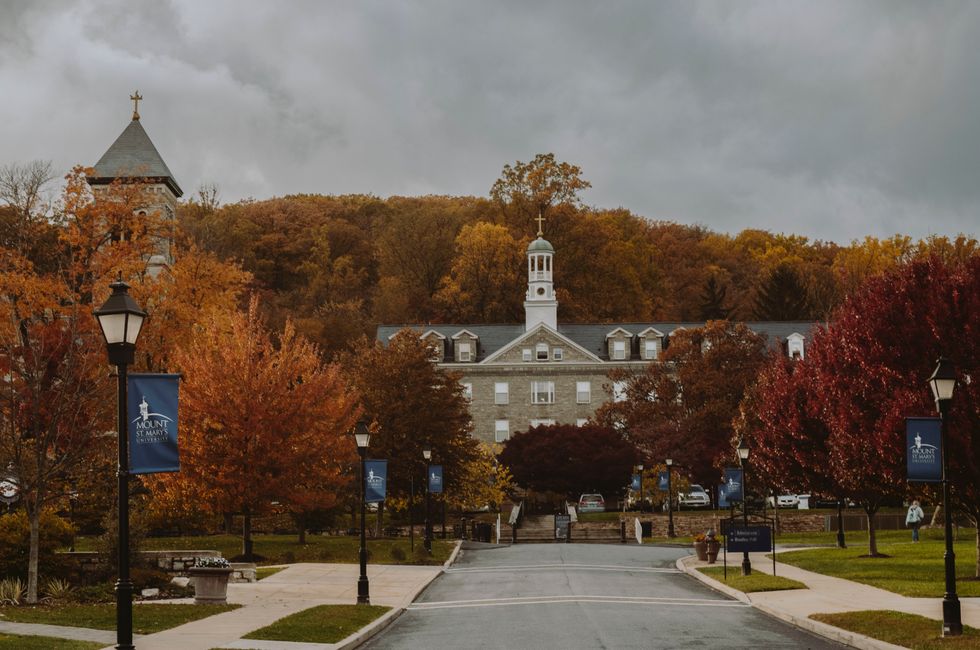We have reached that point in the year where college campuses are flooded with eager parents and timid students poking around the newest and flashiest buildings on campus. Seeing the herds of tour groups around campus has reminded me of the long days of senior year waiting for notifications to appear in my email and thick envelopes in my mailbox. I think the most important points to remember throughout this process relate to patience and believing that the odds will be in your favor.
The college application process truly begins with the single essay that is at the core of each application. From there, you have to consider supplemental essays, interviews, and factor in tours. The college process is comparable to a sick round of speed dating that never seems to end, and at some point, you lose all hope of finding the right match. I'm here to tell you, however, that you need to keep your faith because it will end successfully. Below are five tips to consider during the painful waiting period and help you make the right choice.
1. School size
I truly didn't consider this point fully until I got to school in New York and appreciated my classes with 25 students or less. I am able to learn a lot better with fewer students around and my professors know my name. This is especially important when you need recommendation letters, want to discuss your grade, and need advising. Professors are here to help you learn, but if you're in a class of 300 people, you won't have the same chance to build a relationship as you would in a class of 30 people.
Many professors have also had previous careers and lots of contacts in the industry at their fingertips, which is also especially handy when summer is fast-approaching and you haven't had any experience in your field. College is a lot bigger than high school, and it's important to consider how you'll feel in a larger environment that's also away from the comfort of home.
2. School spirit
Obviously, Big 10 schools will have way more student body involvement than a small liberal arts school in Western Massachusetts, but everyone's different. If you're looking to have a school that rallies for each game of every sport, just remember you won't find that as easily at smaller schools in part because the student body is that much smaller.
Besides sports, concerts will also be more prominent at larger universities with more well-known artists, but colleges could offer other perks like cheap ski lift tickets, sponsored trips, and other various activities. If you thrive in big crowds and enjoy sports, a large university is right for you, but if you prefer to do your own thing and think a dive bar sounds like a hell of a time, consider a smaller college.
3. College town
If you have ever been to Burlington, Vermont, then you know exactly what an ideal college town looks like. Unfortunately, not every school has a gorgeous backdrop next to a lake with small shops and gourmet restaurants. In fact, some of the best universities are in crime-ridden neighborhoods that damper your ability to roam the city in your free time. Fordham is in the Bronx, Trinity is in Hartford, Marist is in Poughkeepsie, and Yale is in New Haven. Not only does the city matter for nightlife, restaurants, and museums, but also consider the opportunities to find a job. It's important to consider your surrounding environment for internships and time spent off campus, but also sometimes a big city like New York can be extremely overwhelming (not to mention expensive) during your four undergraduate years.
4. Abroad opportunities
Ah, one of my favorite topics to talk about. Going abroad is one of the best experiences you can afford yourself during your college years, and the school makes it easier for you to move to Europe if you choose a school with strong international relationships. For example, Fairfield University and Marist College make it especially easy for you to select a program and fill out an application versus Fordham's process that requires you to dig through programs at other universities and apply through third-parties. After spending two years at school and dealing with ridiculous processes and advising struggles, the last thing you want to be confronted with is a mound of complicated paperwork to live in Europe for a few glorious months.
5. Internship opportunities
Finally, the only point on here that actually pertains to real life (aka, life after college). At some point, you hope that after four years and thousands of dollars and hours spent in a hole studying, you will get a job and begin adulting. This is the mindset that everyone goes to college with, but then you travel and meet people who hold an expensive degree that
Northeastern University is well-known for their co-op programs that align students with jobs for a semester that usually end in job offers or valuable experience in understanding where they would like their career to go. Other schools like Fordham and Boston University are nestled in big cities that have an abundance of internship opportunities to pursue. Location plays a big part in a school's internship options, and this is especially important to consider for post-graduation decisions. When school breaks for the winter session or summer break, you are completely on your own unless you have utilized career services or dug through Indeed.com to find open positions. Choosing a school with a useful location will work to your benefit in adding experience to your resume.









 Energetic dance performance under the spotlight.
Energetic dance performance under the spotlight. Taylor Swift in a purple coat, captivating the crowd on stage.
Taylor Swift in a purple coat, captivating the crowd on stage. Taylor Swift shines on stage in a sparkling outfit and boots.
Taylor Swift shines on stage in a sparkling outfit and boots. Taylor Swift and Phoebe Bridgers sharing a joyful duet on stage.
Taylor Swift and Phoebe Bridgers sharing a joyful duet on stage.













